#indo muslim
Text
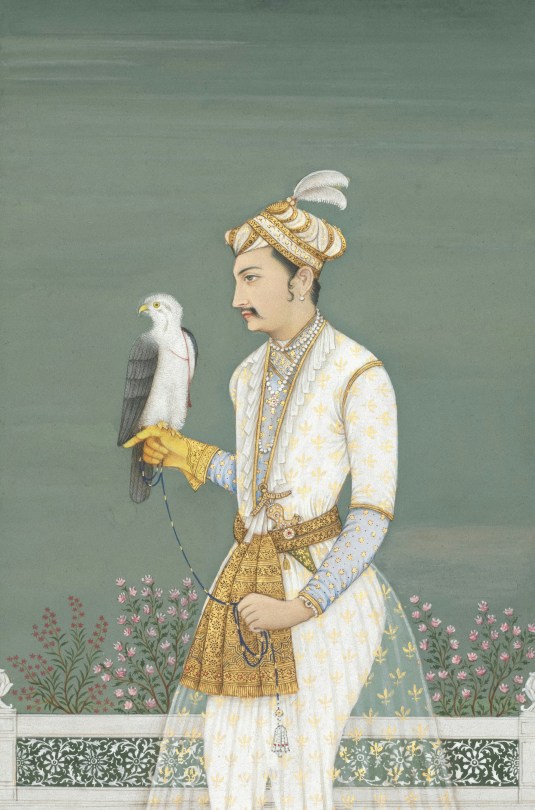
Portrait of a Prince with a Hawk | 18th Century
Mughal miniature, gum tempera and gold on paper
#art#mughal painting#mughal miniature#mughal empire#portrait#hawking#1700s#18th century#18th century art#south asia#south asian art#south asian art history#south asian royalty#early modern history#indo muslim#indian subcontinent#💮💮#curators on tumblr
50 notes
·
View notes
Text
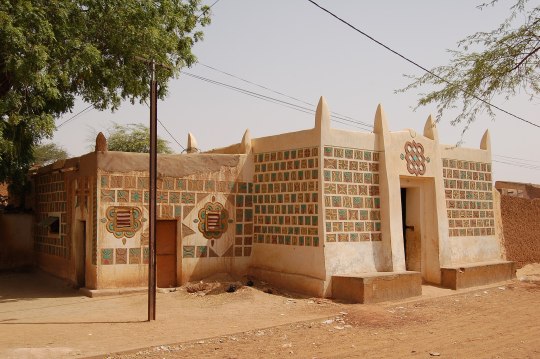
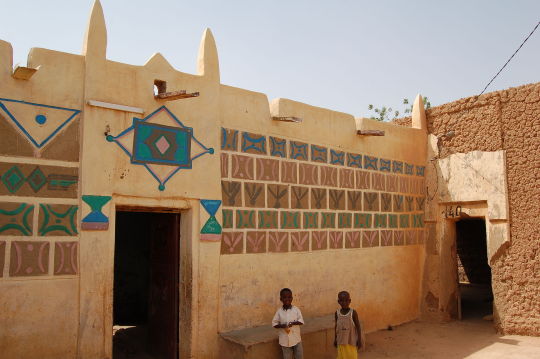
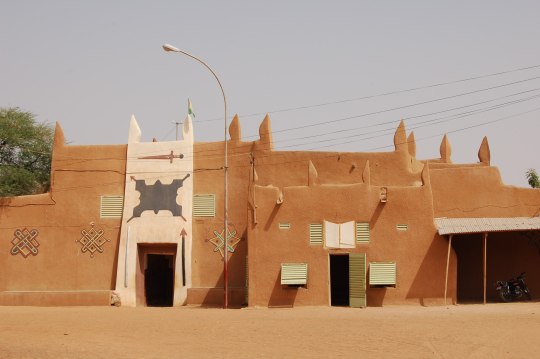
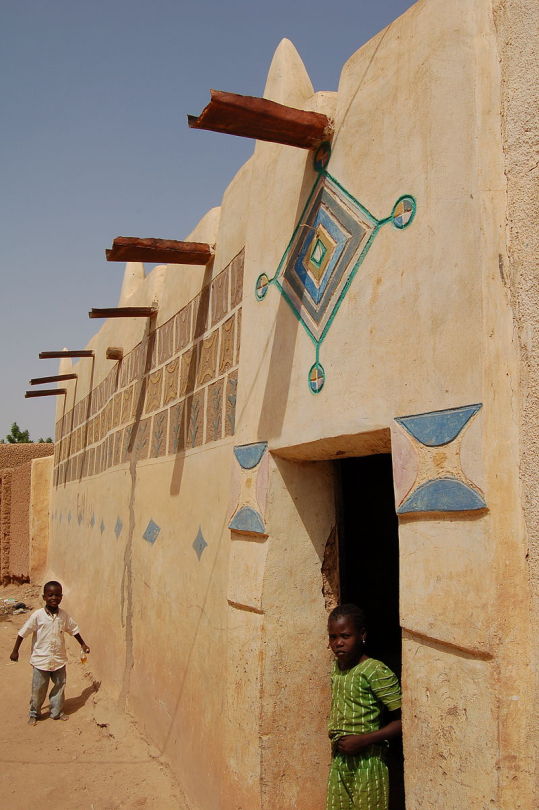
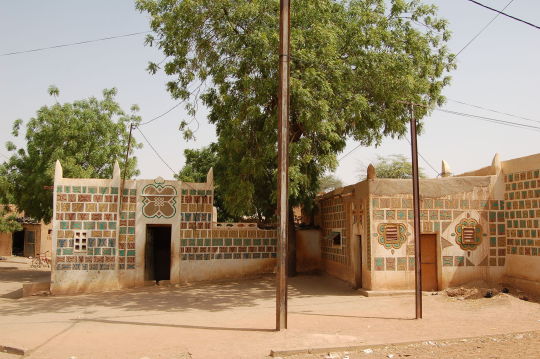
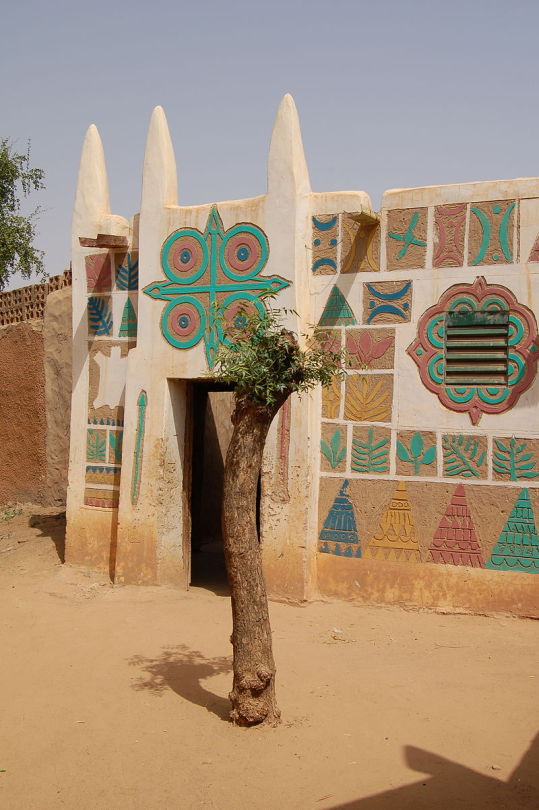
some of the architecture of zinder, niger. zinder rose from a small hausa village into an important center of trans-saharan trade during the 18th century, culmunating in it becoming the capital of the sultanate of damagaram in 1736.
#niger#hausa#architecture#my posts#in case you didn't know: hausa is a part of the afroasiatic language family (same family semitic langs are in)#there's a lot of theories about how exactly afroasiatic speakers spread & there isn't a consistent cultural/migration pattern#like w/ indo-euro languages#but hasua is probably to arabic/hebrew/syriac what english is to bengali or assamese (except even less similar)#i can pick out some hausa words myself ('sama' is 'heaven') but tbh im not sure how many are loadwords from arabic (since they use#'dunya' for 'world' for example). most hausa are muslim so itd make sense if they took some arabic words
612 notes
·
View notes
Text
one of the absolute worst unironic takes i've seen on the instawebs is "only people from x background can write main characters from x background" like holy shit how can you possibly politicize literature to this extent?
it's genuinely shocking to me that some people's personal motto when it comes to art and media creation is "only write what you are". with this mindset, writing inherently becomes about social and political identity when it should be about "let's do justice to this character and their background the best we can".
#being from the caribbean which is so defined by métissage is one of the myriad reasons why this is so insane to me#like research write and get feedback when you write things that you aren’t#if your work still sucks after all of that then yeah people should call you out#but the idea that only x can write x is ludicrous and also pathetic#publishing is such a dumpster fire post-tiktok#for anyone new here i’m both muslim and indo-caribbean this isn’t some kinda lowkey internalized racism post btw#books#literature#reader#book blog#media literacy#reading comprehension#books and literature#identity politics#literary criticism#critical reading#woc writers#writing#poc dark academia
53 notes
·
View notes
Text
Exquisite latticeworks at the Humayun Tomb, Delhi


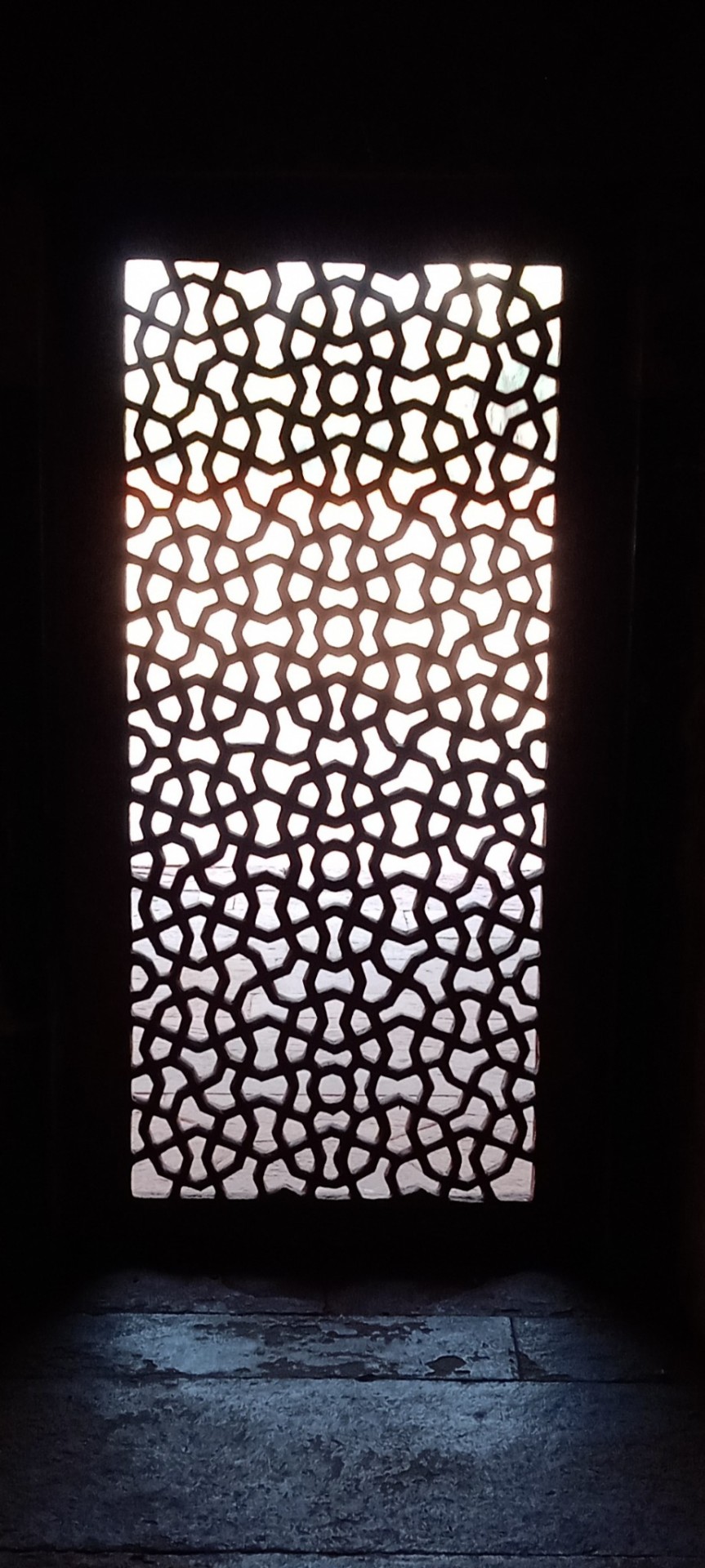
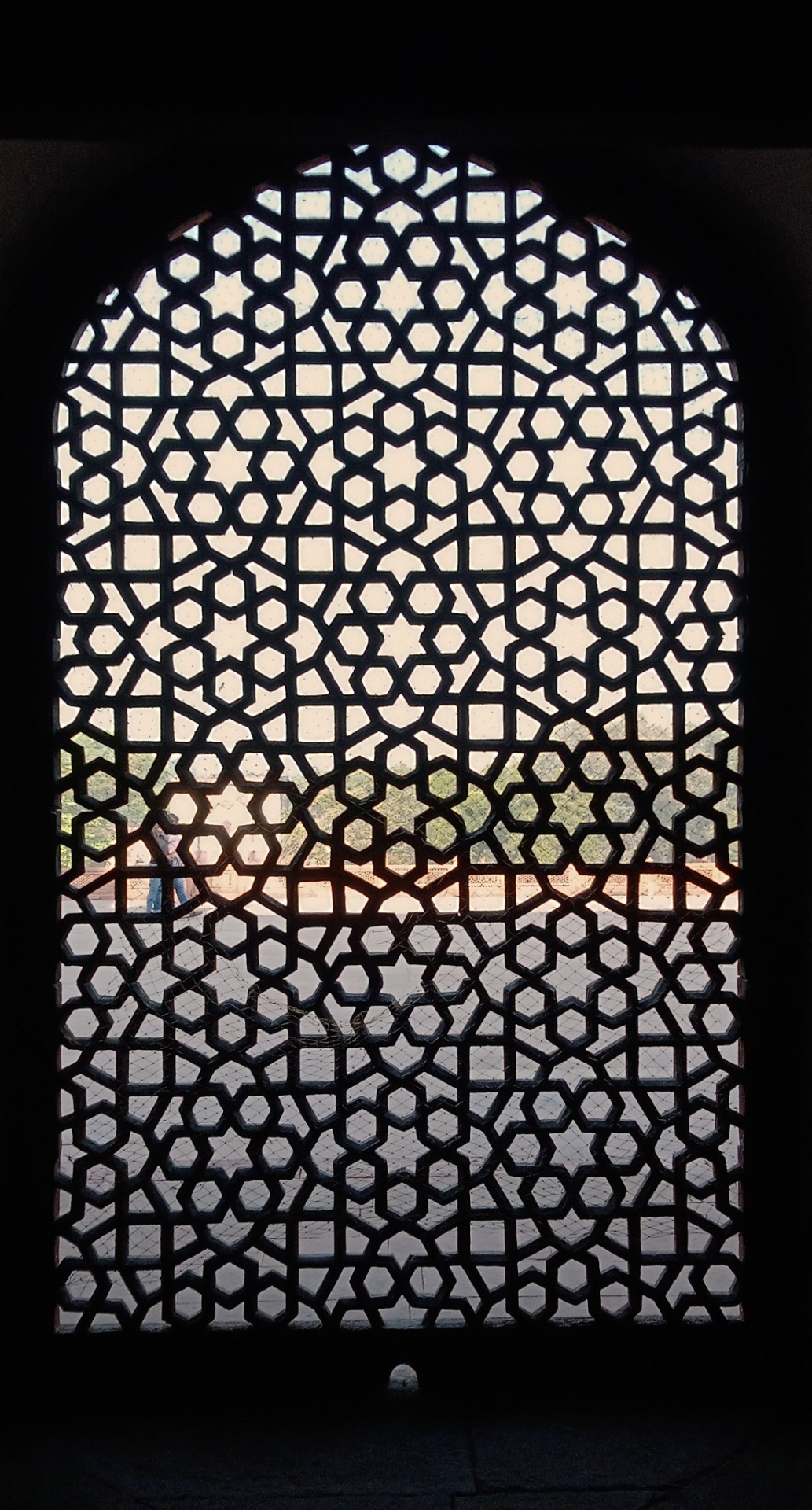


#latticework#Humayun tomb#Islamic architecture#historical monument#delhi#jaali goemetric patterns#fatehpur sikri#muslims in India#mughal empire#indo persian architecture
19 notes
·
View notes
Text

celebrating oshi no ko anime adaptation 🥳🥳 ai hoshino in normal highschool uniform :" (as she should be)
should've been ironing my ied outfit rn but i want to finish this wip first bcs it haunts me /jk
#oshi no ko#oshi no ko fanart#ai hoshino#hoshino ai#oshi no ko ai#anime fanart#fanart#qomy cursed doodle#happy holiday my fellow indo fren#and happy eid mubarak muslim fellas!!!
3 notes
·
View notes
Note
Hi!
Arab indo anon here forgot to ask, is damian muslim in your remix or is he just following the culture of arab?
Also you draw henna on his hands so well! (I fully hc damian loving doing henna art on people that he cares about)
Hi again! Damian is muslim in my mind palace~
Aah I LOVE THAT HC and you know what that means!!


#askjesncin#supersons#damian wayne#jon kent#robin#superboy#jl remix#jon: this is just wasian solidarity feelings right???#narrator: it was not
338 notes
·
View notes
Text
Idk who needs to hear this but removing Mughal history from history textbooks completely to the point that the future generations wouldn't even KNOW who the Mughals were, is not the way to go.
You can't just distort history and remove a chunk of it. That's a very biased way of viewing something that actually happened not even 500 years ago. History is not fiction. You can't remove the existence of real people.
When you remove Mughal history, you also remove the good and bad they did. You remove the reason behind the beautiful blend of Indo-Islamic architecture, culture and art we see today, few of the things that have implied towards a sense of harmony amidst the religious chaos that reeked back in the day. But with that, you ALSO remove the massive destruction and looting of thousands of temples, the inhumane measures, laws and punishments they put up against non-Muslims, the struggles and sacrifices of the Hindus and other oppressed groups who protested against these atrocities oh-so-courageously. You remove their cries, their brave stories. You remove the valiant fights Shivaji, Maharana Pratap and their likes put up against these people. You remove the martyrs of the several genocides these guys (especially Babur) caused. You remove them all, because once there's no Mughals, who did these brave souls fight against?
Also why only Mughals? What about the Khaljis, Mamluks, Tughlaqs, Ghaznis and others? They committed way worse atrocities than the Mughals did tbh. So with that logic all of their histories should be wiped out? But that's almost like a 700-800-year-history-wipeout we're talking about (the dates might not be accurate). And that's not how it works.
Here's a better idea. Just... show their good and their bad, and just don't glorify them and their tyranny. We keep the struggles and the sour lives the suppressed groups lived under the rule of these dynasties, and maybe glorify the brave souls who fought selflessly against them. We show how they plundered any place of worship that wasn't a mosque (or Islamic in general), and treated the idols of these religions post-destruction. We can also include the non-Islamic kingdoms and kingdoms that stood still and strong despite the invasions, like the many Hindu kingdoms in the south, then the Ahom dynasty and a few other small kingdoms in the northeast, etc. We can bring lesser-known and highly underrated non-Islamic kingdoms into light too in this process, and how they dealt with these invaders. (Half of these points are already depicted in the existing textbooks, or... atleast the textbooks *I* studied back in school, but I think they get kinda overshadowed by the subtle glorification of these invaders)
These are the solutions I'd provide. If anyone has anything to add, please do, or if yall have better solutions, pls lmk. But removing a huge chunk of history just out of pure hate and revenge like this is NOT the way to go about in the field of history LMFAO. It's the same as how that one biased historian recently claimed that no Hindu temples were destroyed by the Islamic invaders.
#keep the conversation civil btw cuz i dont wanna fight with anyone#mughal empire#ncert#cbse#cbseboard#hindublr#mughal invasion#mughal dynasty#desiblr#desiposting#desi tumblr#desi tag#islamic invaders#islamic invasion
176 notes
·
View notes
Text
Oh man, there's just something about weddings- no matter what religion/country, that each have their certain features that is just oh so endearing and I'd just love to have it all😭
Okay, so take Hindu weddings. There's a lot of things to love, but my fav? The sindoor, because it's just so so intimate and like- some people say that if some of that red powder falls on your nose, it means that your husband loves you very much 😭😭😭😭 oh not to mention, I saw some guy touching his forehead with his brides to apply the sindoor and I just- 🫠
Then take Muslim weddings, and like yes, indo obviously love the whole "mehr" thing, but it's always so adorable to see what the bride asks for her mehr (which is often money, but not always. Some brides ask for a kitten, a trip, or even a verse from Quran)🩷🩷🩷 and also the first halal hug- oh its just so heartwarming to see the way the groom embraces his bride in his arms with the utmost carr, maybe a peck on the forehead if they're into PDA.
And then there's catholic weddings, where they do the vows- "in sickness and in health" omg😭 and and the bride wearing something "blue, borrowed" etc that's cute too- BUT ALSO THE "ANYONE HAS ANY OBJECTIONS?" omg I would die if some (handsome and wanted) guy did actually object to my matrimony.
But apart from religious weddings, I also love everyone's traditions- I saw a video of Hunza people in Pakistan, where the couple make rotis (bread) together to signify the bond of their relationship- teamwork.
I know some of u guys would LOVE this- in Roma weddings, the guy kidnaps the girl of his liking (as far as I know, the guy already has the blessings and permission from the girl's parents) and then after negotiations, a wedding happens.
*gasps* I JUST REMEMBERED when I was little I used to watch Indian soap dramas and I was so jealous when I found out that not everyone does that ceremony where there's a bowl of milk with rose petals in it, and they drop a ring in it for the bride and groom to find and whoever finds it first, will mean that that person will be more dominant in the relationship- and EVERY SINGKE TIME THE GUY WOULD FIND THE RING FIRST BUT DISCREETLY PASS IT TO HIS WIFE SO THAT SHE COULD BE THE WINNER ONGGGGG
And then the Arab countries just practically frowning the bride in gold and money... I like that very much.
Wait omg I remember that Pakistanis have these GRAND welcome for the new bride in their home. I mean, first the groom brings her home in a fancy car or something, then the entire house is lit up with fairy lights and then they do FIREWORKS 😭😭
And in Indian, Pakistani, Bengali weddings, there's the henna tattoo ceremonies, and I love that so much, maybe because I grew up watching bollywood and desi shows, so I'm just gonna say they have amazing weddings.
*sniffle* I get it- I get why women dream of their weddings all their life.
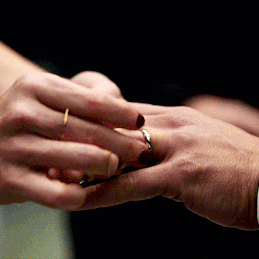
61 notes
·
View notes
Note
Books you would recommend on this topic? Colonial, post colonial, and Cold War Asia are topics that really interest me. (Essentially all of the 1900s)
Hello! An entire century is huge and I don't quite know what exactly you're looking for, but here we are, with a few books I like. I've tried organising them, but so many of these things bleed into each other so it's a bit of a jumble
Cold War
1971 by Srinath Raghavan: about the Bangladesh Liberation War within the context of the Cold War, US-Soviet rivalry, and the US-China axis in South Asia
Cold War in South Asia by Paul McGarr: largely focuses on India and Pakistan, and how the Cold War aggravated this rivalry; also how the existing tension added to the Cold War; also the transition from British dominance to US-Soviet contest
Kennedy, Johnson, and the Nonaligned World by Robert B. Rakove: on the US' ties with the Nonaligned countries during decolonisation and in the early years of the Cold War; how US policy dealt with containment, other strategic choices etc
South Asia's Cold War by Rajesh Basrur: specifically about nuclear buildup, armament and the Indo-Pak rivalry within the larger context of the Cold War, arms race, and disarmament movements
Colonialism
India's War by Srinath Raghavan: about India's involvement in World War II and generally what the war meant for South Asia politically, economically and in terms of defense strategies
The Coolie's Great War by Radhika Singha: about coolie labour (non-combatant forces) in the first World War that was transported from India to battlefronts in Europe, Asia and Africa
Unruly Waters by Sunil Amrith: an environmental history of South Asia through British colonial attempts of organising the flow of rivers and the region's coastlines
Underground Revolutionaries by Tim Harper: about revolutionary freedom fighters in Asia and how they met, encountered and borrowed from each other
Imperial Connections by Thomas R. Metcalf: about how the British Empire in the Indian Ocean was mapped out and governed from the Indian peninsula
Decolonisation/Postcolonial Asia
Army and Nation by Steven Wilkinson: a comparative look at civilian-army relations in post-Independence India and Pakistan; it tries to excavate why Pakistan went the way it did with an overwhelmingly powerful Army and a coup-prone democracy while India didn't, even though they inherited basically the same military structure
Muslim Zion by Faisal Devji: a history of the idea of Pakistan and its bearing on the nation-building project in the country
The South Asian Century by Joya Chatterji: it's a huge book on 20th century South Asia; looks at how the subcontinental landmass became three/four separate countries, and what means for history and culture and the people on the landmass
India Against Itself by Sanjib Baruah: about insurgency and statebuilding in Assam and the erstwhile NEFA in India's Northeast. Also see his In the Name of the Nation.
I hope this helps!
49 notes
·
View notes
Text
the concept of indegenity has to framed within a particular political context or time period otherwise you risk diluting the meaning of the word itself, saying the 'indo aryans were settlers' is not only wrong but also legitimizes the dumbass bs that hindunats say about South Asian Muslims. Trying to use specific terms that cannot be used to describe pre feudal society to do so and having a pop-sociology instagram infographic based understanding of these words is actively harmful! Read a book!!
22 notes
·
View notes
Text

western women get a lot of flak for being too independent or "masculine" but it always makes me think of spartan women. i think about that quote: "why are spartan women the only women who rule their men" and queen gorgo says it's because "spartan women are the only women who give birth to real men." i think plutarch also mentions that spartan men were always obedient to their wives.
or as socrates put it (quoted by xenophon): "It is the example of the rider who wishes to become an expert horseman: 'None of your soft-mouthed, docile animals for me,' he says; 'the horse for me to own must show some spirit' in the belief, no doubt, if he can manage such an animal, it will be easy enough to deal with every other horse besides. And that is just my case. I wish to deal with human beings, to associate with man in general; hence my choice of wife. I know full well, if I can tolerate her spirit, I can with ease attach myself to every human being else."
and i think there's a lot of truth to this. i think cultures with spirited, independent women are made stronger by it, for a number of reasons. and i think it actually plays a major role in western civilization's success. a strong-willed man and a strong-willed woman working together in union is an incredibly strong foundation for a family and a civilization.
and i don't want to give the impression that the west was ever some kind of gender-egalitarian utopia. but i do think a significant degree of respect for women is a common feature in western civilization (and i'd say broader indo-european culture too). at least compared to other civilizations. and especially in the prechristian and, now, the postchristian eras (though i'd say it even bleeds through in the christian era in some ways too). i mean there's a reason why feminism first blossomed in the west and not elsewhere.
but yeah, this desire for some docile, obedient slave-wife seems to be very contrary to the spirit of western civilization. i mean, it seemed like the default view of women in prechristian europe, for better or worse, was that women were these wild, powerful, passionate, promiscuous creatures who needed to be tamed. and yes, women were expected to be loyal and amenable/agreeable to their husbands but this is hardly unreasonable and is a far cry from the obedient slave-wife some people propose as an ideal (namely traditional christians and muslims and the like).
"women should be banned from doing manual labor" -- traditionally, women did all sorts of manual labor. medieval peasant women would be working in the fields just like the men. and even if they weren't working a field there would be plenty of other physically taxing jobs they'd be doing. not saying that women should be encouraged to do extremely dangerous or physically taxing jobs, but if they're able to more power to them. and i kinda detest this desire to portray women as frail and incapable. they are the weaker sex but they're not weak. let's not infantilize them.
also, western women generally marry out of love and commitment and view themselves (rightfully) as partners in union with their husbands. whereas these types of women (the woman who made this post) believe women's sole purpose is to be obedient little decorations who do nothing but sit around and look pretty (and maybe have babies if she's very traditional -- but often you won't even get that!) while the man just gives her money. it's transactional and superficial. there's no real love or partnership. it's not a good foundation for a family or a civilization.
anyway, belated happy women's day.
#i actually have so much more to say about this but i'd be here all day#i was also gonna talk about women in latino cultures too#and how simpish the men can be#and yet latino men are viewed as very masculine#and objectively they have some of the highest rates of testosterone#but yeah if you are latino and live around latinos then you know that their women have a reputation for being very not-submissive lmao#and yes i generally consider latin america part of western civilization#at least at the periphery of it
14 notes
·
View notes
Note
Hey! You said you were Indian and I saw in another post you said you don’t talk to ppl much about ur astrology interest bc it’s too woo woo and seen as something of older generations (pls correct me if I’m wrong!). I just wanted to ask what the general attitude of Vedic astrology is India ? I imagine it would be hard to generalise just considering how many sects of Hinduism there are and how huge India is. Also this may be silly (and I hope I don’t sound ignorant) but do you learn about it at school? Not necessarily in a religious way but like from an academic, historical way? I live in Europe for example and I go to a historically catholic university, and so I have a course on ancient Roman religion which ofc doesn’t have much to do with our modern context or anything, but inadvertently we do learn about astrological signs and their archetypes. Just wondering if there would be an equivalent in Indian schools?
This post is so long winded I’m sorry. Last question: have you ever heard of the proto-indo-European theory, in terms of the origins of certain ancient religions in regions of Europe and Asia? It’s a super interesting linguistic theory, I would like to explain but this anon is already super long haha, I would recommend reading about it tho, and if you would like I could totally explain!
Yes I did indeed say those things. India is a large country and a country of a billion people. Astrology is a big part of Hindu culture. Some people are more religious than others and more superstitious than others. Astrology is not synonymous with religion tho. Its a part of it but not all religious people are going to also be deeply invested in astrology? Many people are but its not necessary. However, astrology is very important in certain areas of life, when fixing a marriage for example; since arranged marriages are common in India, astrologers are consulted (and being an astrologer is a real job here too) to draw up the synastry chart (we call it kundli milan which kind of means chart matching?? very literal lol, its to see how much your charts match with each other) and its a very elaborate process and on many occasions marriages don't take place because the kundlis dont vibe well or because it spells doom and gloom (indian astrologers can be vvv black and white, they will literally say "if you marry xyz, you will die a painful death etc although in many traditions its forbidden to predict death??), astrology is also used to fix a muhurat which means the most auspicious time to perform that activity? suppose you're constructing a house or moving into a home or getting married or sometimes even with elective C section, people choose the date based on the astrology of it (after consulting an astrologer)
regardless of caste or sects, astrology is kind of deeply permeated into Hindu culture and even many non Hindus are invested in it. contrary to what popular depictions of India may have you believe, religious syncretism is very much alive and has long been a part of Indian culture. so many Hindus go to dargahs, celebrate muslim festivals and many muslims celebrate hindu festivals and go to temples and there are many other religions in india as well and everybody kind of has a mish-mash of many different belief systems. but i would say upper caste Hindus can often be more "puritan" in their practices and beliefs and less willing to embrace others. all that said, for a lot of people, especially the younger generations (more than 50% of indians are below the age of 25) astrology is tied to superstition simply because for many many years, astrology has been used in many damaging ways.
indian astrologers can make very black and white predictions and since Indians in general love to be fatalistic and believe things are predetermined at birth, astrology negatively feeds this attitude and often punishes people who've done nothing wrong (here's an article that goes into some of it) an astrologer can say that your cousin will negatively impact your business and some people will go out on a limb and murder that cousin 💀💀im not in the slightest bit exaggerating when i say that people often take astrological predictions to the extremes in india. esp in the context of arranged marriage, it often happens that the person who is a perfect astrological match for you is some 34yr old man with a pedo stache (and you're 20 and the astrologer predicts that if you dont get married by 23 your family's luck will be ruined) so astrology is majorly practiced in ways that are demoralising and fcked up. this is why people think youre kind of insane or stupid or straight up fcked in the head if they know you believe in or practice astrology. its hard to try to explain to them that im more into decoding patterns based on the mythology of the stars and understanding the more philosophical and symbolic meaning of nakshatras *sigh*
no we dont study astrology in schools and its not looked at as a "legitimate" study either. spirituality is largely looked at as a scam in india because we have sooo many fake gurus and fake astrologers peddling their bs. astrology and spirituality are also heavily gatekept. many believe in it but they dont study it even if they practice it lol
i looked it up and all i could understand is that there is a common ancestor language to indian languages and european languages?? 😭idk more than that but it would be nice if you could explain it. idk if you mentioned it randomly or if there is a connection between the theory and vedic astrology?? either way, id like to hear your thoughts<333
sorry that this is soooo long lol
10 notes
·
View notes
Text

Borneo is the largest island in Asia, with a rich history and diverse ethnic groups such as Dayak, Malay, Bajau, Kedayan, Banjar, Kadazandusun and many more.
Borneo, a land blessed with wildlife and unparalleled natural beauty as well as abundant natural resources.
At an estimated 130 million years old, Borneo's rainforest is two times as old as the Amazon rainforest in South America.
Evidence for prehistoric human occupation of Borneo has been found at Neah Cave in Sarawak, including fossil bones, stone tools, and wall and ceiling paintings. Borneo is first mentioned in Ptolemy’s Guide to Geography of about 150 CE. Roman trade beads and Indo-Javanese artifacts have been discovered that give evidence of a flourishing civilization dating to the 2nd or 3rd century CE. Three rough foundation stones with an inscription recording a gift to a Brahman priest dated from the early 5th century, found at Kutai, provide evidence of a Hindu kingdom in eastern Kalimantan. Brahmanic and Buddhist images in the Gupta style have been found in the valleys of the Kapuas and other rivers in western Kalimantan. Later Kalimantan rulers were probably feudatories of the Majapahit empire of eastern Java (c. 1293–1520). With the arrival of Islam early in the 16th century, a number of Muslim kingdoms were founded, including the Banjarmasin, Sambas, Sukadana, and Landak. The Sukadana rulers owed allegiance to the Muslim Mataram kingdom of Java.
Modern European knowledge of Borneo dates from travelers who passed through Southeast Asia in the 14th century. The first recorded European visitor was the Franciscan friar Odoric of Pordenone, who visited Talamasim on his way from India to China in 1330. The Portuguese, followed by the Spanish, established trading relations on the island early in the 16th century. At the beginning of the 17th century the Portuguese and Spanish trade monopoly was broken by the Dutch, who, intervening in the affairs of the Muslim kingdoms, succeeded in replacing Mataram influence with their own. The coastal strip along the South China and Sulu seas was long oriented toward the Philippines to the northeast and was often raided by Sulu pirates. British interests, particularly in the north and west, diminished that of the Dutch. The Brunei sultanate was an Islamic kingdom that at one time had controlled the whole island but by the 19th century ruled only in the north and northwest. In 1841 Sarawak was split away on the southwest, becoming an independent kingdom ruled by the Brooke Raj. North Borneo (later Sabah) to the northeast was obtained by a British company to promote trade and suppress piracy, but it was not demarcated until 1912. Those losses left a much-reduced Brunei, which became a British protectorate in 1888.
During World War II the Japanese invasions of Borneo (1941–42) quickly eliminated the token British and Dutch forces on the island, which was not retaken until 1945. In July 1946 both Sarawak and North Borneo were made British crown colonies. In Dutch Borneo a strong nationalist sentiment developed and led to fighting between Indonesian and Dutch forces as the latter attempted to reimpose Netherlands control. Sovereignty passed to the Indonesians in 1949, and in 1950 a new constitution proclaimed Dutch Borneo part of the Republic of Indonesia.
The British government relinquished its sovereignty over Sabah and Sarawak in 1963, when those territories joined the Malaysian federation. That marked the commencement of Indonesian hostilities in the form of guerrilla raids across the border. Those raids ceased by agreement in 1966. Except for the period of Japanese occupation, Brunei remained a British protectorate until 1983. It became fully independent on January 1, 1984.
BORNEO, 1 Island, 3 Countries
4 notes
·
View notes
Text
Hws Indonesia things:
- Not a muslim (boring) (he should be a regular traditionally spiritual Indo dude who mixes all kinds of faith into one syncretic blob)
- Bi (both misogynistic and homophobic but hella shameless during action)
- Not a prude (a slut)
- Not an introvert (he’s a thoroughly shameless extrovert)
- Not gloomy (he’s TOO shameless)
- Not mild mannered (he’s violent)
17 notes
·
View notes
Text

This is a gittern, or quintern, a late medieval/early renaissance European instrument that has roots in the classical Roman cetra and in small Arabic instrument that survives in Yemen as the qanbus and along East Africa as the gabbus or gabusi.
The gittern was played melodically with a quill or gut plectrum in a manner that is still preserved in North Africa.
What I believe happened is that ouds and smaller instruments akin to the Yemeni qanbus, that came to Spain via the Muslim conquest of Andalusia, spread through Europe and merged with the local descendents of the Roman cetra to become instruments like this one.
The names cetra, cittern, gittern, guitar, and kwitra are etymologically related and have Proto-Indo-European roots. The cetra is Roman, the cittern, gittern, and guitar European, and the kwitra North African.
This gittern or quintern was made by Hans Oth in 1450. I don't think the name quintern refers to its five strings, but is rather an etymological cousin of the North African kwitra, which looks something like a larger version of this.
Note the rosette pattern is Gothic, not Arabic. The European lute had an Arabic rosette, due to its more direct provenance from the Middle East. The European guitar, cittern, and gittern had Gothic rosettes, due to their common origins in the Roman cetra.
I think small instruments related to the qanbus have fallen out of use in the Middle East, but are still played in parts of Africa. I think these surviving African traditions are older than the styles of oud playing found in the Middle East, and are remnants of a much broader tradition with origins in Central Asia and Greater Iran.
64 notes
·
View notes
Text
pinned poast

img by tespics
they/them, 21, tme | hi hello my name is psychix :) just chix is also fine. indo (jktmaxxer but jogjapilled at heart and yes i'm jawa), muslim, super ultra normal guy hater of many things lover of even more. i like rambling in the tags so that's a thing you might wanna watch out, or perhaps, stay for!
links - art blog | spotify | backloggd (go ahead laugh at me)
click the link and donate today!
more under the cut xoxo
i may be a hater but all haters are first and foremost lovers. things i'm currently interested in are the elder scrolls, vampire: the masquerade, amc's iwtv, and ace attorney (dgs my beloved). i also like grim fandango, dunmeshi, gundam (mostly uc gundam), brba/bcs, dbz, and bg3. no i don't like star wars. i don't know what you're talking about. and of course my ocs. oc perverts unite....!! the ocs i most often talk about are jaden, iggy, alfyrrha, and saai.



minors be wary when following me, sometimes i reblog crass and more than suggestive things. and everyone, too, should be wary, bc i can get really fucking annoying about lacroix vtmbloodlines.












2 notes
·
View notes